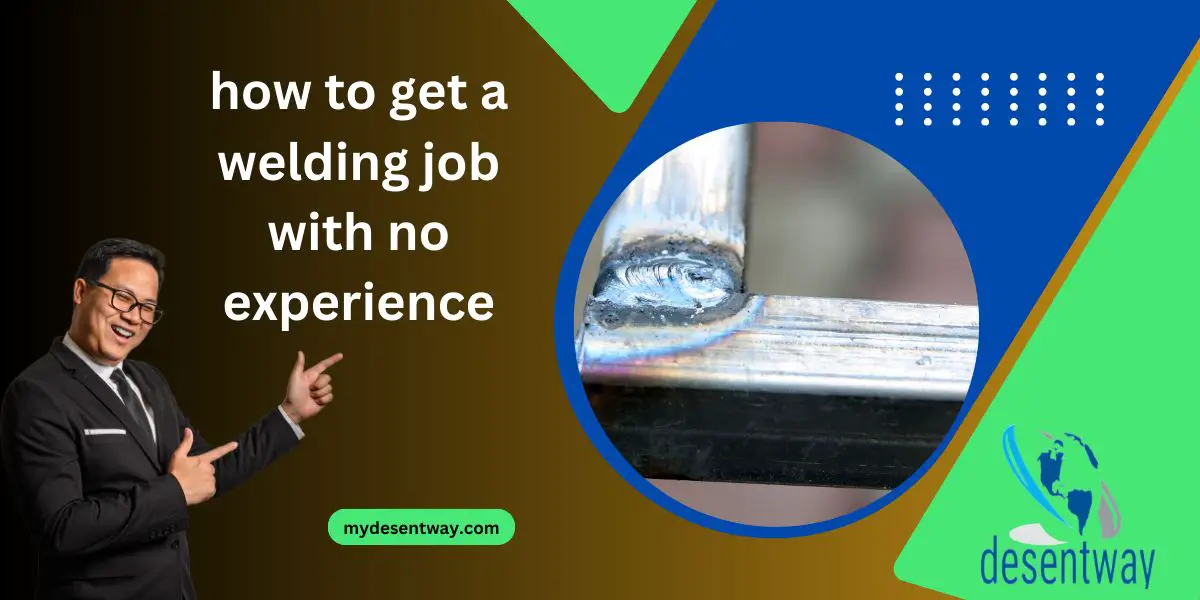Table of Contents
- 1. The Importance of Welding Certifications
- 2. Building a Strong Foundation: Basic Welding Skills
- 3. Creating an Impressive Welding Resume
- 4. Networking in the Welding Community
- 5. Seeking Entry-Level Welding Positions
- 6. Showcasing Personal Welding Projects
- 7. Internships and Apprenticeships: Gaining Practical Experience
- 8. Online Resources for Learning and Skill Enhancement
- 9. Overcoming Challenges in Getting a Welding Job
- 10. Interview Tips for Aspiring Welders
- 11. Staying Updated on Industry Trends
- 12. Gaining Specialized Welding Skills
- 13. Success Stories: Real-life Experiences
- How do I get my first job as a welder?
- What is an entry-level welder?
- What could I expect to earn as a beginner welder?
- What are some skills entry-level welders need?
- Conclusion
- FAQs about Welding job with no experience?
The welding industry is booming, with a growing demand for skilled professionals. Securing a welding job with no experience may seem challenging, but with the right approach and determination, it’s entirely possible. In this guide, we’ll explore various strategies to help you kickstart your welding career, even if you’re starting from scratch.
1. The Importance of Welding Certifications
Before diving into the practical aspects, let’s discuss the significance of welding certifications. Welding certifications, such as those from the American Welding Society (AWS), not only validate your skills but also make you more attractive to potential employers. Different certifications cater to various welding processes, and obtaining them can significantly enhance your job prospects.
2. Building a Strong Foundation: Basic Welding Skills
Begin by mastering fundamental welding techniques. Even if you lack professional experience, having a solid foundation in basic skills can set you apart. Consider enrolling in local workshops or community college courses to gain hands-on experience. The more comfortable you are with the basics, the more confident you’ll be in a real-world welding environment.
3. Creating an Impressive Welding Resume
Crafting a resume without experience requires emphasizing your relevant skills and training. Highlight any welding courses or certifications you’ve completed, even if they’re not extensive. Focus on transferable skills, such as attention to detail, precision, and problem-solving. Tailor your resume to the specific requirements of entry-level welding positions.
4. Networking in the Welding Community
Building a strong network is vital in every job search. Join local welding groups, attend industry events, and participate in online forums. Networking not only exposes you to potential job opportunities but also allows you to learn from experienced professionals and gain valuable insights into the industry.
5. Seeking Entry-Level Welding Positions
Research companies that are open to hiring entry-level welders. Look for job openings that explicitly state they are suitable for beginners. Tailor your applications to highlight your passion for welding, willingness to learn, and foundational skills. A carefully written cover letter can have a big effect.
6. Showcasing Personal Welding Projects
Create a portfolio showcasing personal welding projects. Whether it’s a metal sculpture or a practical welding repair, having tangible examples of your work demonstrates your skills to potential employers. A portfolio is especially valuable when you lack professional experience.
7. Internships and Apprenticeships: Gaining Practical Experience
Consider pursuing internships or apprenticeships to gain hands-on experience. Many companies are willing to invest in individuals who show dedication and a willingness to learn. Check with local welding shops, manufacturing companies, or trade schools for available opportunities.
8. Online Resources for Learning and Skill Enhancement
In the digital age, online resources offer a wealth of information and training. Explore welding courses and tutorials available on platforms like YouTube, Udemy, or LinkedIn Learning. Diversify your skill set by learning about different welding processes and technologies.
9. Overcoming Challenges in Getting a Welding Job
Address the lack of experience head-on in your applications. Emphasize your passion for welding, commitment to learning, and any steps you’ve taken to enhance your skills. Be proactive in addressing potential concerns employers may have about your experience level.
10. Interview Tips for Aspiring Welders
Prepare for interviews by practicing common questions and formulating thoughtful answers. Showcase your enthusiasm for the field and your eagerness to learn. Be ready to discuss specific examples from your training or personal projects that highlight your abilities.
11. Staying Updated on Industry Trends
Welding technology is dynamic, with continuous advancements. Stay informed about industry trends by reading industry publications, attending conferences, and participating in online discussions. Demonstrating your awareness of the latest developments can make you a valuable asset to employers.
12. Gaining Specialized Welding Skills
Consider gaining specialized skills in niche areas of welding. Whether it’s underwater welding, aerospace welding, or robotics in welding, specialization can make you stand out in a competitive job market.
13. Success Stories: Real-life Experiences
Learn from the experiences of others who have successfully secured welding jobs with no prior experience. Their journeys can provide valuable insights and inspiration as you navigate your own path in the welding industry.
How do I get my first job as a welder?
Landing your first welding job involves a strategic approach:
Networking: Connect with local welding professionals through industry events, workshops, or online platforms like LinkedIn. Attend trade shows or join welding communities to build valuable connections.
Training and Certifications: Invest in welding courses and certifications to enhance your skills and boost your marketability. Organizations like the American Welding Society (AWS) offer various certification programs that can make you stand out.
Apprenticeships and Internships: Seek out apprenticeship programs or internships offered by local welding businesses. These opportunities provide hands-on experience and a chance to learn under the guidance of seasoned professionals.
Build a Strong Resume: Craft a compelling resume that highlights any relevant skills, coursework, or certifications you’ve acquired. Emphasize your eagerness to learn and your commitment to safety standards.
Apply Strategically: Tailor your job applications to emphasize your willingness to learn and your enthusiasm for the field. Focus on entry-level positions and emphasize any transferable skills from past experiences.
What is an entry-level welder?
An entry-level welder is someone who is new to the welding profession and typically has little to no prior work experience in the field. Entry-level welders may have completed basic welding courses or certifications and are now seeking opportunities to apply their skills in a professional setting.
What could I expect to earn as a beginner welder?
The salary of a beginner welder varies based on factors such as location, industry, and skill level. On average, entry-level welders can expect to earn between $15 to $20 per hour. As you get more experience and become more skilled, you can earn more money.
What are some skills entry-level welders need?
Entry-level welders should possess a combination of technical and soft skills, including:
Technical Skills:
Welding Techniques: Proficiency in various welding processes such as MIG, TIG, and stick welding.
Blueprint Reading: Ability to interpret and understand welding symbols and specifications.
Safety Awareness: Adherence to safety protocols and knowledge of welding safety procedures.
Soft Skills:
Attention to Detail: Precision is crucial in welding; therefore, a keen eye for detail is essential.
Problem-Solving: The ability to troubleshoot and solve welding challenges on the job.
Communication: Effective communication with team members and supervisors.
Conclusion
In conclusion, while getting a welding job with no experience may present challenges, it’s certainly achievable with dedication and the right strategy. Focus on building a strong foundation of skills, networking within the industry, and showcasing your passion through personal projects. Continuous learning and adaptability are key to a successful welding career.
FAQs about Welding job with no experience?
Is it possible to get a welding job with no experience?
Yes, by emphasizing foundational skills, certifications, and a passion for welding, you can secure entry-level positions.
How important are welding certifications for beginners?
Welding certifications enhance credibility and increase job opportunities for individuals with no experience.
What should I include in my welding portfolio?
Showcase a variety of personal welding projects that highlight your skills and creativity.
Are internships necessary for landing a welding job?
Internships provide practical experience and can significantly improve your chances of securing a job.
How can I stay updated on the latest welding technologies?
Stay informed through industry publications, conferences, and online resources to stay abreast of advancements.





4 thoughts on “How to Get a Welding Job with No Experience: A Expert Guide”